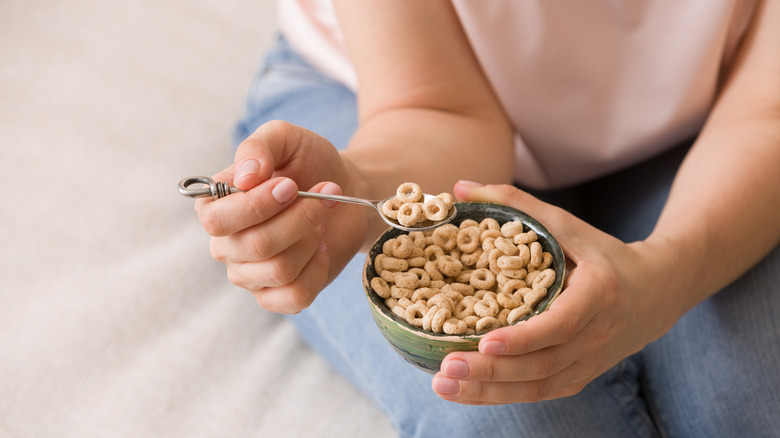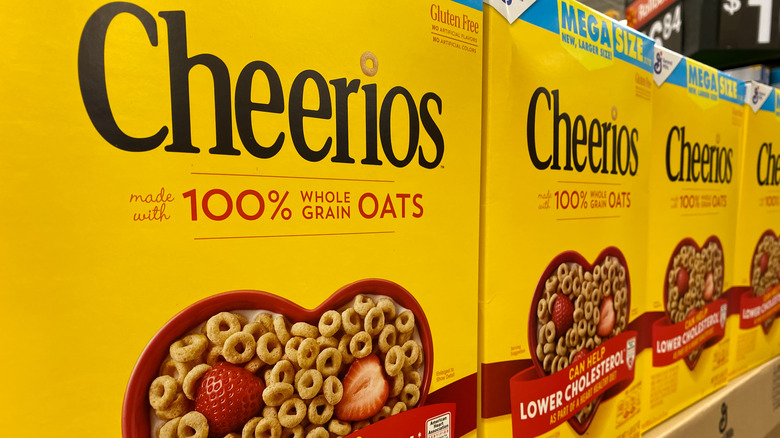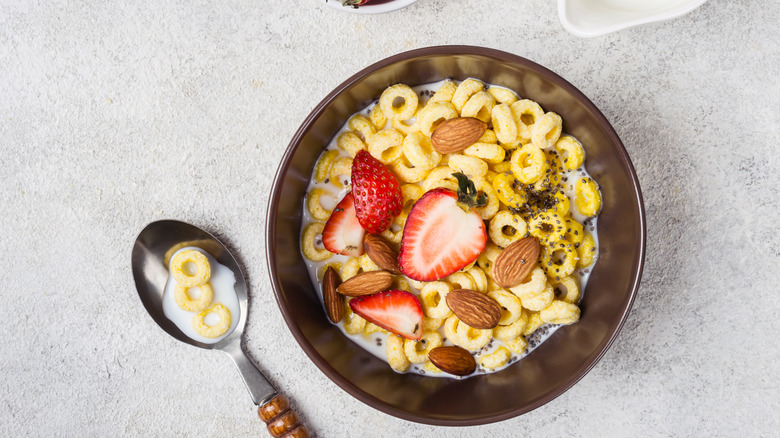
Breakfast cereals have long faced criticism for their added sugar content, and it’s easy to understand why. With additions like marshmallows and chocolate shavings, there’s ample reason for concern.
Enter the Cheerios diet, which suggests consuming 1-2 cups of Cheerios for breakfast, followed by 3/4 cup before lunch, and another 3/4 cup as an afternoon snack. The plan is completed with balanced lunch and dinner meals. With the General Mills Original Cheerios box boldly claiming, “Can help lower cholesterol as part of a heart-healthy diet,” you might wonder – are Cheerios beneficial for you? Original Cheerios are made with whole-grain oats, corn starch, sugar, and salt. One cup contains 1 gram of sugar, 3 grams of fiber, 3 grams of protein, 2 grams of fat, some calcium, iron, and zinc, along with vitamins A, C, D, and B12, according to Healthline. Sounds healthy enough, right?
Nutritionist and author Lisa Richards (via SheFinds) notes, “Most cereals, even those marketed as healthy, can hinder your weight loss goals.” Cheerios might be the worst offender, especially if you’re relying on them for most of your nutrients. “When it comes to Cheerios’ unique weight loss benefits, it lacks nutrients beneficial to weight loss and contains a significant amount of nutrients that hinder weight loss, like added sugar,” shared Richards.
There’s considerably less protein and fiber in Cheerios

For an effective weight loss plan, consuming adequate protein and fiber to keep you feeling full longer is key. Cheerios have relatively less protein and fiber compared to other cereals like Kashi GO Lean cereals.
Culinary and integrative dietitian Marisa Moore, per Prevention, says, “Fiber slows digestion speed, making you feel full and may help you eat less and stay satisfied longer.” Fiber, unlike carbs, is non-digestible, aiding regular bowel movements. Registered dietitian and certified diabetes educator Karen Graham explains in Eat This, Not That that with breakfast cereals, carbs will convert into blood sugar. So unless you’re planning to burn off the extra carbs from a Cheerios diet with regular exercise, it’s unlikely to aid weight loss.
Protein is crucial for weight loss, and a cup of Cheerios doesn’t provide much. Protein offers a metabolic boost (your body burns calories while digesting protein), preserves lean muscle during weight loss, and helps you stay full longer, according to Eating Well.
Should you be eating Cheerios at all?

Compared to other cereals, a bowl of Original Cheerios (not the Honey Nut, Chocolate, Apple Cinnamon, or Frosted varieties) isn’t necessarily bad for you, as long as it’s part of a balanced diet. Plain Cheerios are preferable to the sweetened Multigrain and Ancient Grains versions.
However, despite the whole grain oats, vitamins, and minerals Cheerios boast about, it is still considered processed food. According to board-certified family physician Dr. Ken Berry, even the vitamins are synthetic (lab-made), so obtaining essential nutrients and vitamins from lean protein sources, leafy greens, and whole-grain rice or rolled oats might be better.
If you enjoy a bowl of plain Cheerios occasionally, you can enhance it with extra protein and fiber – like whole nuts, seeds, and fresh fruit – and some plain low-fat milk for breakfast. However, believing you can eat Cheerios three times a day along with two other meals and still lose weight is a weight loss myth to stop believing. You won’t achieve the calorie deficit you need, nor will you get the nutrients required for weight loss.




